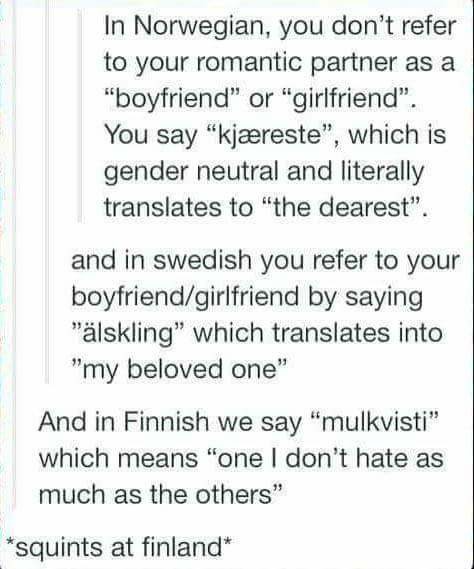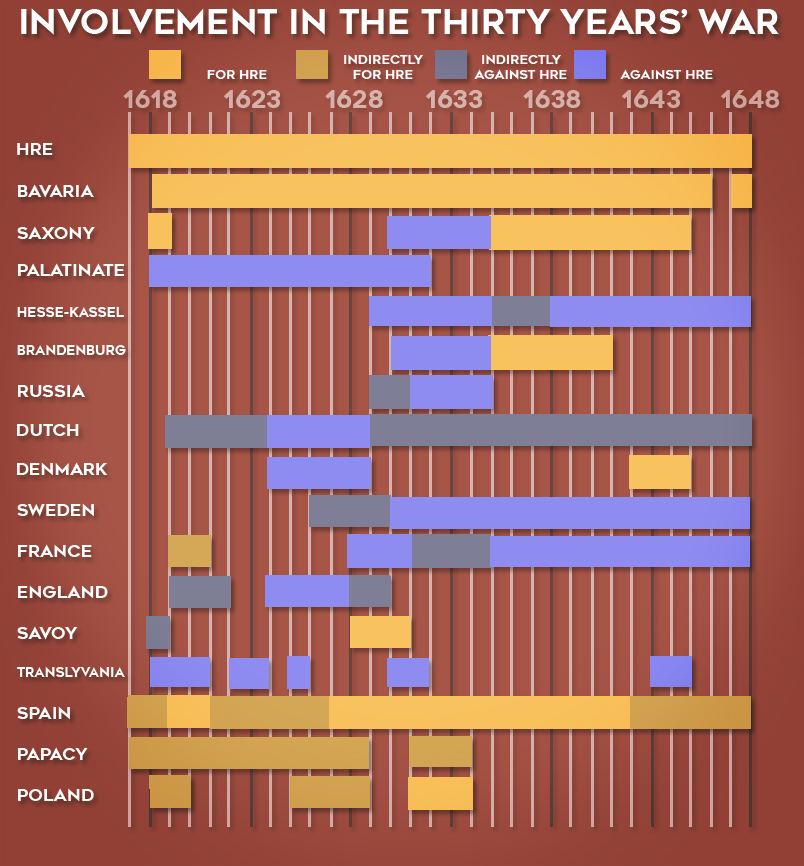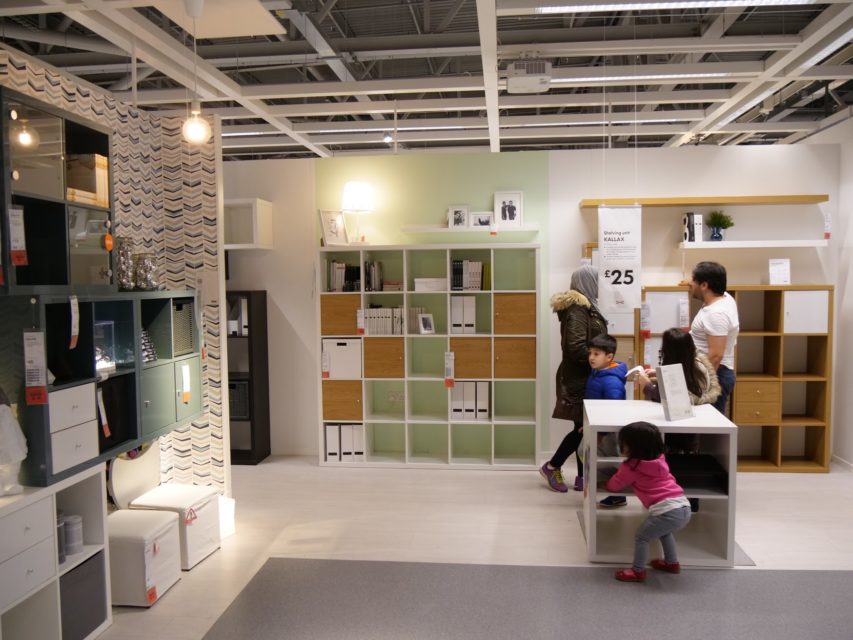Blatantly stolen from a Facebook post that’d been shared many times:
June 13, 2018
Scandinavian love
June 11, 2018
Feature History – Thirty Years’ War
Feature History
Published on 12 Nov 2016Hello and welcome to Feature History, featuring religious conflict, tragic war, and a really nifty collaboration with Jabzy.
3 Minute History – German Peasant’s War
https://www.youtube.com/watch?v=zeQVAUmyLks
April 24, 2018
Sweden’s free speech problem
Hugo Brundin explains why the social unrest Sweden is experiencing over immigration issues today is made much worse by restrictions on free speech:
Few in Sweden have escaped the circus of its migration politics. During the migration crisis of 2015, we had the somewhat dubious claim to fame of receiving record-breaking numbers of asylum-seekers. A year later, in Spring 2016, the ruling Social Democrats closed the borders. For a while, calling attention to problems in Sweden’s immigrant-dominated suburbs would have you branded an alarmist or a racist. Then in January 2018, the Swedish PM Stefan Löfven said he would consider using the military to curb gang violence in those same suburbs (a comment he later retracted). More recently, the Social Democrats have proposed a ban on all religious schools, clearly aimed at those of the Muslim faith. No party in the Swedish parliament supported such a ban a couple of years ago.
Those concerned with immigration have held Sweden up as a warning of the consequences of open-door migration. But the deeper problem in Sweden is one of public discourse, debate and freedom of speech. You see, Sweden has a consensus culture. The Overton Window is so notoriously narrow that it has been termed the ‘opinion corridor’. And when you’re hurtling down the corridor, unable to see what is around the next corner, much less the one after that, you never know where its twists and turns will take you. Opinions that would have had you vilified a few years ago are now part of the political mainstream, and frankly this can feel downright creepy. Sweden should not be a warning of how not to handle migration – it should be a warning of how not to handle public discussion.
Proposals such as the one to ban religious schools, a deeply intolerant and authoritarian idea, are exactly the sort of thing you get when public opinion changes on a dime, when conflicts have not been properly hashed out in public debate. It used to be said that open-door migration would save the economy and welfare state (rather than put strain on them) and that talk of cultural differences between the Middle East and Sweden was just racist myth-making. Yet now, Islamism is the issue du jour, and the political class is desperate to signal that it is doing something about it, with little thought paid to civil liberties.
March 25, 2018
Great Northern War | 3 Minute History
Jabzy
Published on 5 Nov 2015Thanks to Xios, Alan Haskayne, Lachlan Lindenmayer, William Crabb, Derpvic, Seth Reeves and all my other Patrons. If you want to help out – https://www.patreon.com/Jabzy?ty=h
February 20, 2018
December 17, 2017
QotD: Modern eco-paganism
… consider the emergence of a Nature-worshipping environmentalism that would have been viewed as a crazy luxury in the hardscrabble times of 1800 or even of 1933. The economist and student of theology Robert Nelson calls environmentalism the new religion of the West (a West that nonetheless, outside of places like Poland or the United States, imagines itself to be irreligious) […] The economist and think-tank maven Fred L. Smith, Jr. speaks of “eco-paganism”: “Most environmentalists do not, of course, see themselves as pagans,” he writes. “Yet many do espouse a watered-down form of pantheism which elevates nature to near the status of a deity.” By now the good people of rich and secular places such as Sweden, though contemptuous of the childish absurdity (as most Swedes believe it to be) of their ancestors’ worship of a Lutheran God, have found their transcendent in the worship of Nature, and spend their Sunday mornings devoutly gathering mushrooms and lingonberries in Nature’s forest.
Deirdre McCloskey, Bourgeois Equality, 2016.
October 22, 2017
Interview With Pär Sundström from Sabaton I THE GREAT WAR Special
The Great War
Published on 21 Oct 2017Learn more about Sabaton: http://www.sabaton.net/
Sabaton is a Heavy Metal band from Sweden. Battles and events during World War 1 inspired them to do multiple songs about them and Indy is talking with bass player Pär Sundström about the process.
IKEA’s strengths and weaknesses, from a consumer point of view
Paul Sellers posted an article on his woodworking blog, reacting to some British journalists praising IKEA’s “democratisation of design”:
Visually neat and relatively cheap at first glance, but they are basic and they resolve the need in a new and young family for storage. The pinnacle of three-dimensional cubism!
(photo from PaulSellers.com)Yup! a couple of newspaper writers (maybe more, knowing British journalism) reported the same thing in a short space of time, both hailing IKEA as a ‘democratising’ force revolutionising people’s perspectives on furniture design. Both articles were interesting in the way some articles can be, you know, not contributing much to society really, but time filling on a lazy Sunday. What actually struck me most between their somewhat opposing points of views was the unifying thread in their use of the terms “democratisation of design” and “democratising design and the theme of creating affordable, non-fusty furniture for the masses.” As far as I have seen through the years it is not so much IKEA’s ability to design but more their ability to produce zero- or minimalist-design products that seem less to be concepts of style, shape or form but mostly the selling of square-edged, styleless, plank-type items in the form of very, very plain boxes. Yes, I do understand the needs of young families for low cost storage and first year students to furnish their rooms, but democratisers of design!
Unpretentious though their lines are, you can hardly say they are designs so much as meagre assemblies and of course assemblies you generally have to take care in the way they are used because the selling points are their lightweight cheapness, transportability, dismantle-ability and simple (or complex) self-assembly products. You might be better to strike out into similar fashion statements rejecting the classics of old and adopt an equally classless line of unimagination by using old scaffold planks for dining tables and benches or, say, a shipping pallet coffee table on commercial galvanised swivel casters.
Elizabeth and I used to enjoy visiting a furniture store up in Peterborough, but about a year or so back, they stopped carrying the kind of furniture we liked and started stocking exactly the sort of stuff Paul is talking about. Industrial chic is all very well, but these pieces looked like they’d been thrown together at the last possible second as a student project for a college design course: the industrial fittings were cobbled together as crudely and as shoddily as possible, with no eye to either aesthetics or sturdiness. They were literally props that might appear in the background of a Victorian or Edwardian shop floor scene in an off-, off-, off-Broadway kind of production.
I’m far from a curmudgeon on the topic of home decor and furniture, but the pieces in that store were expensive crap. You can do the industrial chic look, or more modern variations using cast-offs from all sorts of places. My friend Brendan, in his first couple of apartments, had no spare cash at all so he scrounged up pretty much all of his furniture from around town. He had the weirdest collection of decades-old store signs, former display cabinets from different eras, and I don’t know what else, but he has a great eye for design, so no matter how eclectic it all was, he managed to make it look appealing and (somehow) integrated. That was clearly the ideal for the owners of the Peterborough furniture store, but they missed the mark by a very large amount.
I never liked lazy, press-release type journalism (as we are used to in British woodworking magazines) because it can be the same as lazy design work; both lacking any true imagination. But the two authors, each celebrating IKEA’s birth for opposite and then too the same reasons, seemed more focussed on this issue of IKEA somehow ‘democratising’ something rather than considering what could be in essence more a diktat. I question whether IKEA makes products that people actually want or makes people want what they make by virtue of cheapness and driving out competition, but then what do I know? I know this though, IKEA only sells what it wants you to buy, sells stuff so cheap that no one else can compete, and devalues the market by forcing down prices to a level that promotes mainly quite dumbed down designs. I don’t ever recall much in IKEA’s selling centres that I would describe as at all imaginative. People buy there because it’s cheap. To zone in on the reporting world, on Beeb 4 a day later a reporter interviewed some head of IKEA UK and allowed way too much waffling claptrap boasting IKEA’s products were now no longer going into the landfill after a short lifespan as the reporter suggested, which is of course absolutely true, but onto the secondhand market, which IKEA wants to include in its ‘widening circle of circulation’.
[…]
On the one hand Rhiannon Cosslett article in the Guardian describes IKEA accurately as the “symbol of impermanence”, but she also follows the same track as India Knight in stating that this IKEA is enabling people to shed their ties with “snobbery regarding middle-class home decoration”. The woman reporting in the Times, India Knight, describes the pretension of owning a semi (duplex, USA) and adding furniture that emulates the chintz (a word used in the two articles) of the rich and famed owners living in UK mansions past as a kind of mindless hypocrisy. I agree to some degree, but then there are those millions of others who follow the IKEA trending in equally mindless ways buying into its philosophies purely on the basis that it’s IKEA, as though IKEA holds the keys to concepts of good design. This, in my mind at least, shows how lacking we can become in discerning just what a good design is. I might liken IKEA designs to all the nations County Councils use of standardised street and buildings signage. Yes, they work effectively, but only because they have a created dull and unimaginative examples that stand out because of dullness. The main difference here of course is that for safety reasons the County Councils have a get out clause. I have yet to walk through an IKEA store without thinking (smelling too) MDF, pressed fibreboard, resins and plastic but how is it even possible that any company could put so much effort into creating so much artificiality.
October 9, 2017
Great Northern War – Lies – Extra History
Extra Credits
Published on 7 Oct 2017Could Sweden have won the Great Northern War? Was Charles XII actually assassinated? James answers questions from our Patreon supporters in this special edition of Lies!
September 25, 2017
Great Northern War – V: Rise and Fall – Extra History
Extra Credits
Published on 23 Sep 2017Charles XII narrowly escaped the Russian pursuit, with help from the Ottoman Empire. But the weak points in his army had been clearly exposed. Northern Europe united against him – but of course, Charles XII responded by launching a fateful counter-offensive into Norway.
QotD: IKEA’s shady history
IKEA itself serves as a fitting symbol of the middle-class masquerade. The company’s well-managed brand obscures the fact that its founder, Ingvar Kamprad, at the time that he founded the store in 1943, was a member of Sweden’s pro-Nazi fascist party, in which he continued to be active at least until 1948 and which he continued to praise for decades after; or that the company used forced prison labor in East Germany until the fall of the Berlin Wall. It is fitting that IKEA’s current worth is unknown, since it is technically owned by a phony-charity shell company incorporated in the Netherlands, enabling Kamprad to evade Swedish taxes. This is not to single out IKEA for particular scorn: one could write an equally lurid laundry list about almost any large corporation; a fascist undertone usually lurks beneath the surface of mass-production and mass-marketing. Consider the fact that Apple uses what is slave labor in all but name in China yet none of their customers seem to care.
Samuel Biagetti, “The IKEA Humans: The Social Base of Contemporary Liberalism”, Jacobite, 2017-09-13.
September 18, 2017
Great Northern War – IV: Clash of Kings – Extra History
Extra Credits
Published on 16 Sep 2017Charles XII had gone to the Ukraine hoping for supplies and reinforcements, especially from the cossacks led by Ivan Mazeppa. But Peter the Great was hot on his trail, and had no intention of letting him off that easy.
September 13, 2017
The Thirty Years War
Published on 10 Nov 2014
The Thirty Years’ War was fought from 1618-1648 (Thirty Years!) in the Holy Roman Empire. It began as a conflict between Catholics and Protestants in Bohemia, but grew to involve Denmark, Sweden, and France. After the French began helping Gustavus Adolphus, the Protestant king of Sweden, the lines became blurry and the war became more about the balance of power in Europe than about religion. The Peace of Westphalia paved the way for France to become the dominant power in Western Europe and for the permanent decline of the Holy Roman Empire as a political institution.
If you like this lecture, check out my other lectures for AP European History and Western Civilization!
September 12, 2017
Great Northern War – III: Young and Violent – Extra History
Published on 9 Sep 2017
Flush from his victories against Poland-Lithuania, Charles XII of Sweden sets his eyes on an even greater enemy: Russia. But its ruler, Peter the Great, is no pushover: as the Swedish troops advance, he burns down the countryside and leaves them starving and exposed as a ferocious winter sets in.
September 9, 2017
The Seven Years’ War
Published on 19 Nov 2016
The Seven Years’ War essentially comprised two struggles. One centered on the maritime and colonial conflict between Britain and its Bourbon enemies, France and Spain; the second, on the conflict between Frederick II (the Great) of Prussia and his opponents: Austria, France, Russia, and Sweden. Two other less prominent struggles were also worthy of note. As an ally of Frederick, George II of Britain, as elector of Hanover, resisted French attacks in Germany, initially only with Hanoverian and Hessian troops but from 1758 with the assistance of British forces also. In 1762, Spain, with French support, attacked Britain’s ally Portugal, but, after initial checks, the Portuguese, thanks to British assistance, managed to resist successfully.







